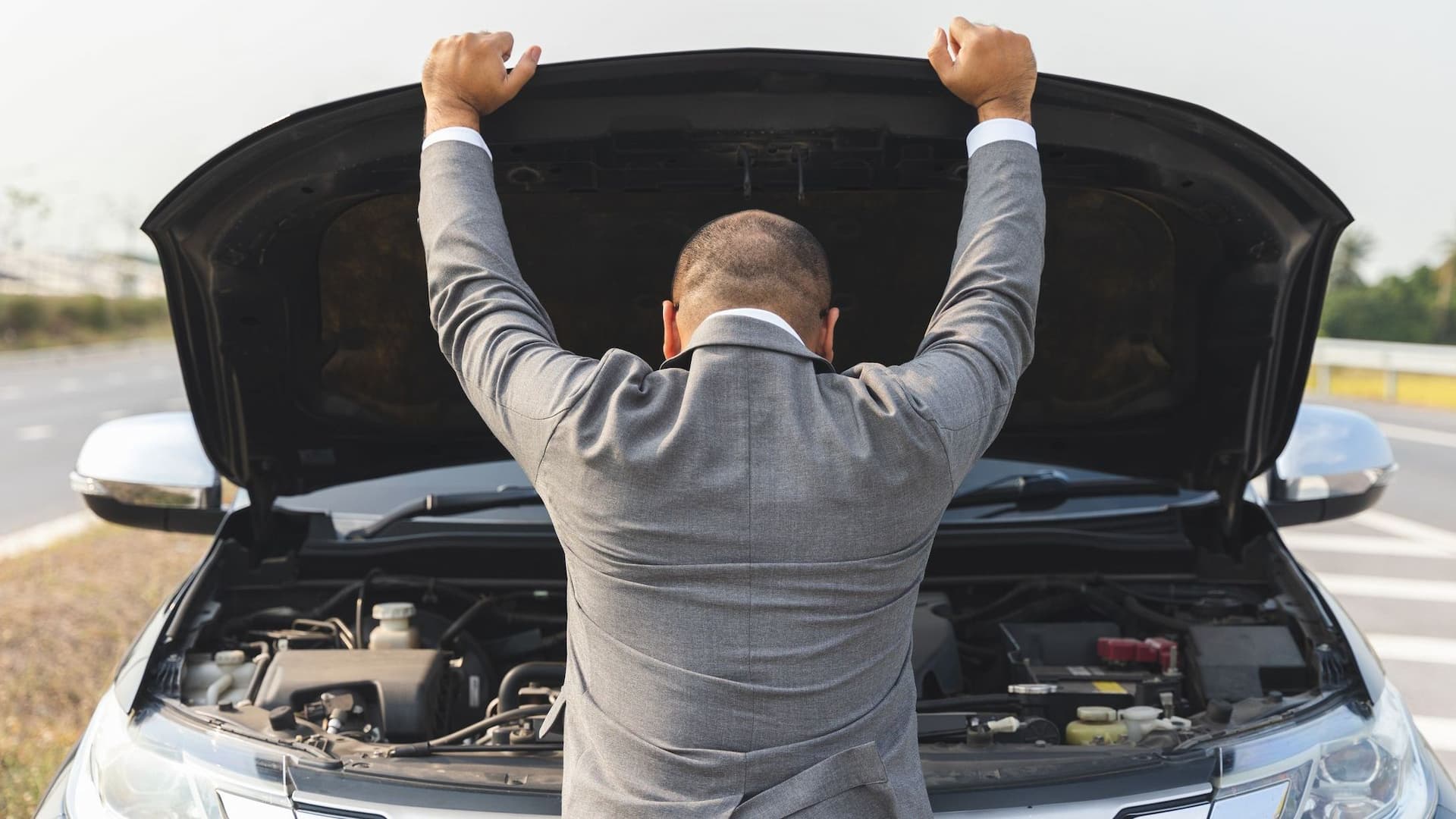Maintaining the longevity of your car requires more than just routine maintenance; it involves adopting good driving habits and avoiding common mistakes that can shorten your vehicle’s lifespan.
While modern cars are designed to be durable and resilient, improper care and bad habits can lead to premature wear and tear, costly repairs, and a reduced lifespan. Many drivers are unaware that their daily actions and neglect can significantly impact the health and performance of their vehicles. In this guide, we’ll explore seven common mistakes that can reduce your car’s lifespan and provide practical advice on how to avoid them.
From ignoring regular maintenance to adopting poor driving practices, these mistakes can take a toll on your vehicle over time. By being mindful of these pitfalls and making conscious efforts to care for your car properly, you can ensure that it remains reliable and performs optimally for many years. Let’s look into each mistake and learn how to address them effectively to extend your car’s lifespan.
1. Neglecting Regular Maintenance
Neglecting regular maintenance is one of the most common mistakes that can significantly reduce your car’s lifespan. Regular maintenance, including oil changes, tire rotations, brake inspections, and fluid checks, is essential to keep your vehicle running smoothly and to prevent major issues from arising. Skipping these routine services can lead to engine problems, reduced fuel efficiency, and increased wear and tear on critical components.
To avoid this mistake, it’s important to follow the maintenance schedule outlined in your car’s owner’s manual. For instance, regular oil changes are crucial for keeping your engine lubricated and preventing overheating.
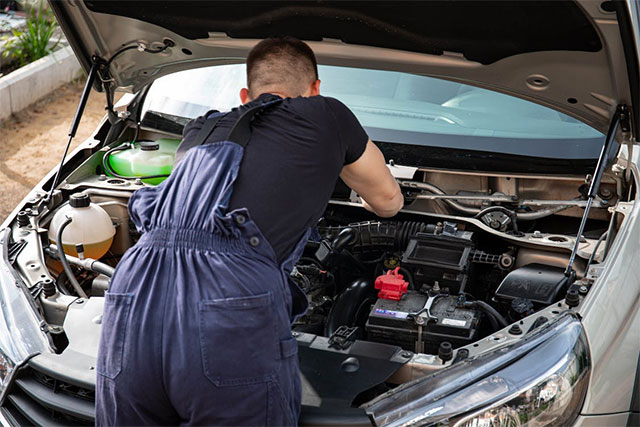
The oil that becomes old or contaminated can increase engine friction, causing parts to wear out more quickly. Similarly, tire rotations help ensure even tire wear, extending the life of your tires and improving handling. Brake inspections and fluid checks are essential for maintaining safe braking performance and preventing potential accidents.
Regularly checking and replacing filters, such as air and fuel filters, can improve your car’s efficiency and performance. Investing in regular maintenance not only extends your car’s lifespan but also helps you avoid costly repairs down the road. A well-maintained vehicle is more reliable, performs better, and retains its value over time.
Additionally, maintaining a regular service history can be beneficial when it’s time to sell or trade in your vehicle, as it demonstrates to potential buyers that the car has been well cared for. By staying proactive and addressing minor issues before they become major problems, you can keep your car in top condition for years to come, ensuring a safe and enjoyable driving experience.
2. Ignoring Warning Lights
Ignoring warning lights on your dashboard is another common mistake that can drastically reduce your car’s lifespan. Modern vehicles are equipped with advanced diagnostic systems that monitor various components and alert you to potential issues. When a warning light illuminates, it indicates that there is a problem that needs immediate attention. Ignoring these warnings can lead to serious damage and costly repairs.
Common warning lights include the check engine light, oil pressure warning light, and brake system warning light. The check engine light could indicate a range of issues, from a loose gas cap to a malfunctioning sensor or a more serious engine problem.
Ignoring this light can result in further damage to the engine and other vital components. The oil pressure warning light signals low oil pressure, which can cause severe engine damage if not addressed promptly. The brake system warning light indicates a problem with the braking system, which is critical for your safety.
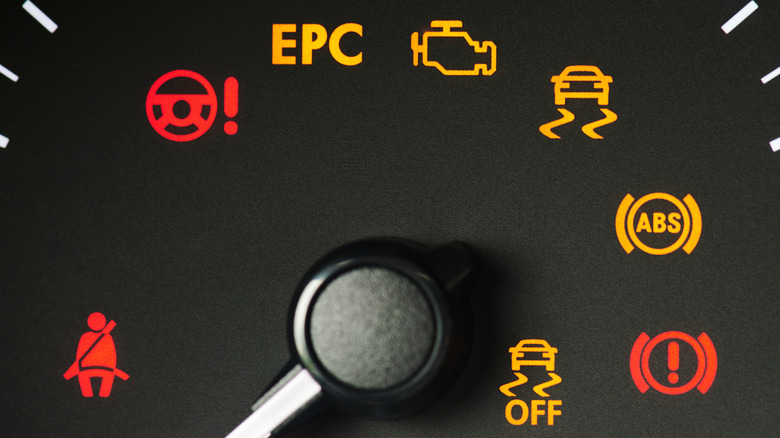
To avoid this mistake, always take warning lights seriously and have your vehicle inspected by a qualified mechanic as soon as possible. Addressing issues early can prevent further damage and ensure that your car remains safe and reliable. It is also a good idea to familiarize yourself with the meaning of various warning lights in your vehicle’s manual so that you can respond appropriately when they appear.
Regular diagnostic checks and inspections can also help identify potential problems before they trigger a warning light, allowing you to address them proactively. By paying attention to warning lights and addressing any issues promptly, you can extend your car’s lifespan and avoid costly repairs down the road, ensuring a smoother and safer driving experience.
3. Driving Aggressively
Aggressive driving habits, such as rapid acceleration, hard braking, and excessive speeding, can significantly reduce your car’s lifespan. These behaviors put additional stress on your vehicle’s engine, transmission, brakes, and suspension components, leading to premature wear and tear. Aggressive driving also negatively impacts your fuel efficiency and increases the risk of accidents.
To extend your car’s lifespan, adopt a more relaxed and smooth driving style. Gradually accelerating and decelerating reduces stress on your engine and transmission, preventing excessive wear. Avoid hard braking by anticipating traffic conditions and maintaining a safe following distance. This not only helps preserve your brakes but also enhances driving safety. Observing speed limits and driving at a consistent pace minimizes strain on your vehicle’s components and improves fuel efficiency.
Smooth driving also contributes to a more comfortable driving experience for you and your passengers. It reduces the likelihood of sudden jolts and vibrations, making journeys more enjoyable. Additionally, it helps in maintaining better control over your vehicle, especially in adverse weather conditions or on slippery roads.
Incorporating these good driving habits can have long-term benefits for your vehicle. It ensures that critical components like the engine, brakes, and suspension system remain in good condition for a longer period. Moreover, smooth driving can help you save money on fuel and reduce the frequency of repairs and replacements, further contributing to your vehicle’s longevity.
By practicing good driving habits, you not only extend your car’s lifespan but also promote safer driving and more economical operation. This proactive approach ensures that your vehicle remains reliable and performs optimally for years to come, providing you with a better driving experience and peace of mind.
4. Overloading Your Vehicle
Overloading your vehicle with excessive weight is another mistake that can significantly reduce its lifespan. Every car has a maximum weight limit specified by the manufacturer, known as the Gross Vehicle Weight Rating (GVWR). Exceeding this limit puts additional strain on your vehicle’s engine, transmission, suspension, and brakes, leading to premature wear and potential damage.
To avoid this mistake, always check your car’s GVWR and ensure that you do not exceed it. Be mindful of the weight of passengers, cargo, and any additional items you may be carrying. When planning a trip or loading your vehicle, distribute the weight evenly to prevent uneven stress on your vehicle’s components. Overloading can also negatively impact your car’s handling and braking performance, increasing the risk of accidents and reducing driving safety.

Carrying excessive weight can also lead to increased fuel consumption, as the engine has to work harder to move the vehicle. This not only reduces fuel efficiency but also increases the cost of operating your vehicle. By adhering to your car’s weight limits, you can reduce the strain on its mechanical components and extend its lifespan.
Properly loading your vehicle also enhances safety and ensures a more stable and controlled driving experience. It helps maintain the integrity of the suspension system, prevents tire blowouts, and reduces the likelihood of brake failure. By being mindful of your vehicle’s weight limits and avoiding overloading, you can keep your car in better condition and enjoy a safer and more efficient driving experience.
Respecting your car’s weight limits is a simple yet effective way to preserve its health and longevity. It ensures that your vehicle remains reliable and performs optimally, providing you with many years of safe and enjoyable driving.
5. Skipping Tire Maintenance
Tires are a critical component of your vehicle, and neglecting their maintenance can significantly reduce your car’s lifespan. Proper tire maintenance includes regular tire rotations, balancing, alignment checks, and maintaining the correct tire pressure. Neglecting these tasks can lead to uneven tire wear, reduced fuel efficiency, and compromised handling and braking performance.
To avoid this mistake, make tire maintenance a priority. Regularly inspect your tires for signs of wear, such as uneven tread wear, cracks, or bulges. Tire rotations should be performed according to the manufacturer’s recommendations, typically every 5,000 to 7,000 miles, to ensure even wear and extend their lifespan.
Regularly check and maintain the correct tire pressure, as underinflated or overinflated tires can negatively impact your car’s performance, safety, and fuel efficiency.
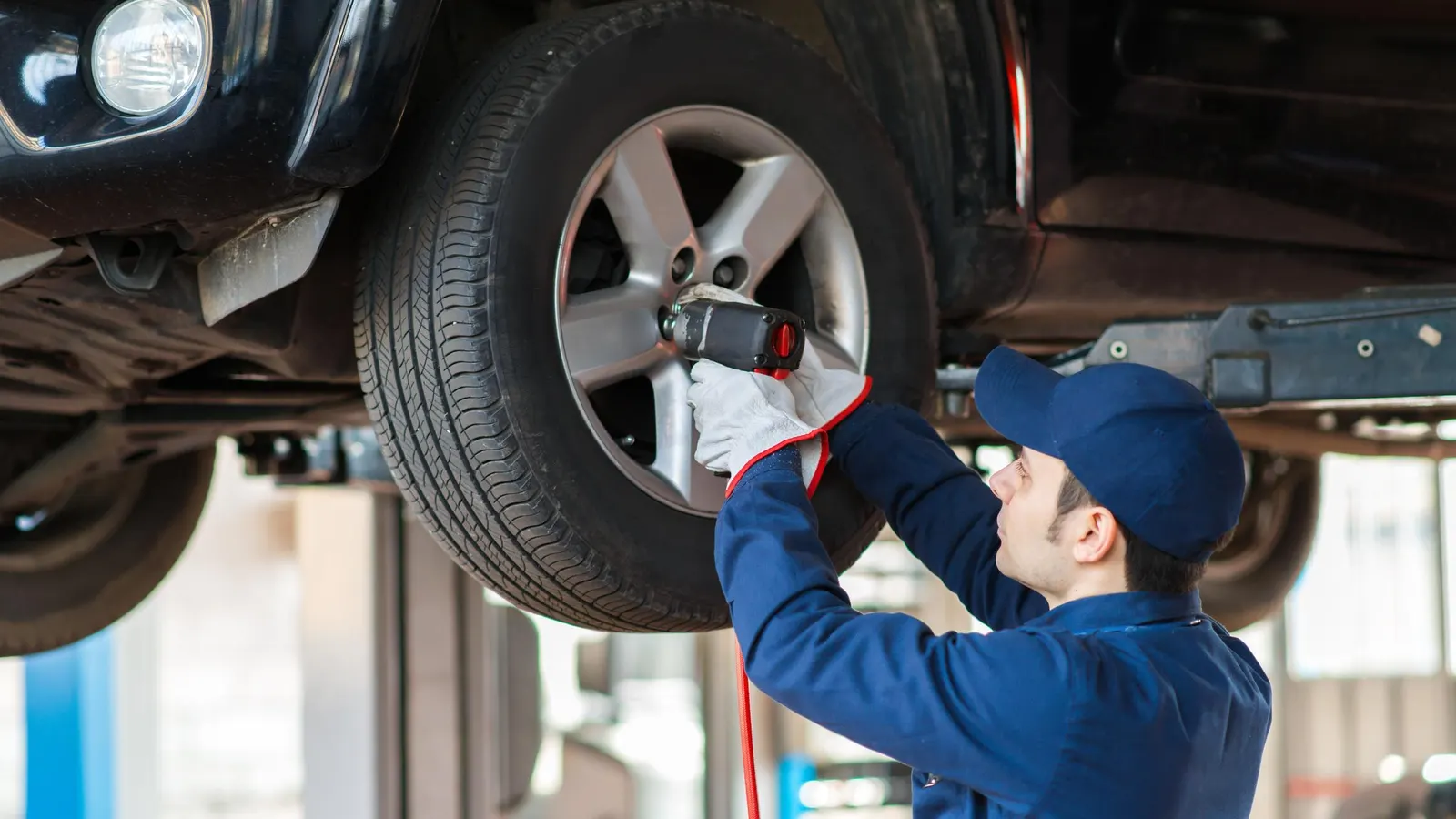
Balancing your tires helps prevent vibrations and ensures a smooth ride. It involves adjusting the weight distribution around the tire and wheel assembly. Unbalanced tires can lead to uneven wear and strain on suspension components.
Alignment checks ensure that your vehicle’s wheels are properly aligned, preventing uneven tire wear and improving handling. Misaligned wheels can cause your car to pull to one side, leading to increased tire wear and potential safety hazards.
Proper tire maintenance not only extends the life of your tires but also contributes to vehicle performance and safety. Well-maintained tires provide better traction, handling, and braking performance, reducing the risk of accidents. Additionally, maintaining the correct tire pressure improves fuel efficiency, saving you money on fuel costs.
By making tire maintenance a regular part of your vehicle care routine, you can ensure a safer and more comfortable driving experience. It helps you avoid costly tire replacements and repairs, ultimately extending the lifespan of your vehicle and keeping it in top condition.
6. Neglecting Fluid Checks
Fluids play a vital role in your vehicle’s operation, and neglecting fluid checks and changes can significantly reduce your car’s lifespan. Important fluids include engine oil, transmission fluid, coolant, brake fluid, power steering fluid, and windshield washer fluid. These fluids lubricate, cool, and protect various components, ensuring smooth and reliable operation.
To avoid this mistake, regularly check and top up your vehicle’s fluids. Follow the manufacturer’s recommendations for fluid change intervals and use the specified types of fluids.
Regularly checking the engine oil level and condition is crucial, and changing the oil and oil filter as recommended is essential for preventing engine damage. Monitoring the coolant level and ensuring that it is at the proper concentration helps prevent overheating and engine damage.
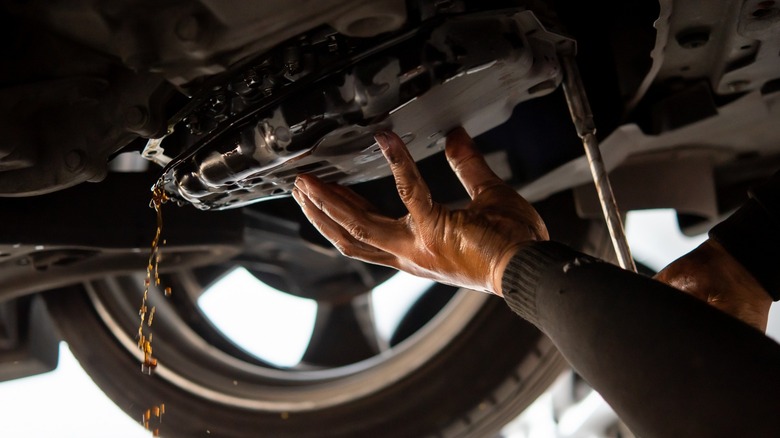
Inspect the transmission fluid for proper level and condition, and have it changed as needed to maintain smooth shifting and prevent transmission wear. Check the brake fluid level and top up if necessary, as low brake fluid can compromise braking performance and safety. Ensure that the power steering fluid is at the correct level to maintain smooth and responsive steering operation. Lastly, keep the windshield washer fluid topped up to ensure clear visibility and safe driving in various weather conditions.
By regularly checking and changing your vehicle’s fluids, you can prevent potential issues and extend your car’s lifespan. Proper fluid maintenance ensures that your car’s components are adequately lubricated, cooled, and protected, contributing to reliable and efficient performance.
Making fluid checks a regular part of your vehicle care routine is a simple yet effective way to preserve its health and longevity. It ensures that your vehicle remains reliable and performs optimally, providing you with many years of safe and enjoyable driving.
7. Ignoring Minor Issues
Ignoring minor issues and delaying repairs is a common mistake that can reduce your car’s lifespan. Small problems, such as strange noises, warning lights, or minor leaks, can escalate into major issues if left unaddressed. Ignoring these warning signs can lead to costly repairs, increased downtime, and potential safety hazards.
To avoid this mistake, address minor issues promptly by having your vehicle inspected by a qualified mechanic. Pay attention to any unusual sounds, vibrations, or warning lights, and do not delay repairs. For example, if you hear a squealing noise when braking, it could indicate worn brake pads that need to be replaced. If left unchecked, it can lead to damage to the brake rotors and increased repair costs. Similarly, a minor coolant leak can cause the engine to overheat if not addressed promptly, leading to significant engine damage.
Regular inspections and diagnostic checks can also help identify potential issues before they become major problems. For instance, routine checks of belts and hoses can reveal signs of wear and prevent unexpected breakdowns. Ensuring that all fluid levels are within the recommended range can prevent overheating and mechanical failures.
By staying proactive and addressing minor issues promptly, you can extend your car’s lifespan and avoid costly repairs down the road. It ensures that your vehicle remains safe and reliable, providing you with peace of mind and a smoother driving experience. Additionally, maintaining a record of repairs and inspections can help you stay on top of your car’s maintenance needs and improve its resale value.
Paying attention to minor issues and addressing them promptly is a simple yet effective way to preserve your car’s health and longevity. It ensures that your vehicle remains in top condition, providing you with many years of reliable and enjoyable driving.

